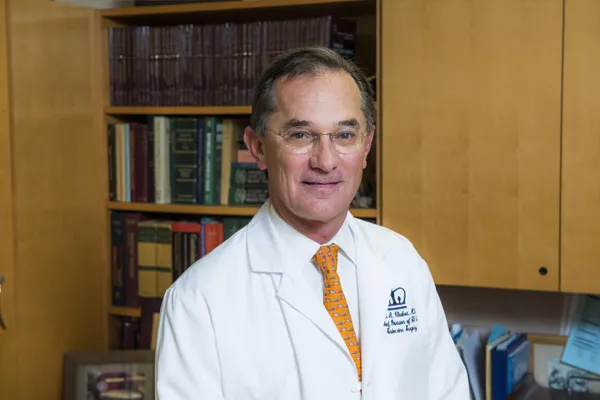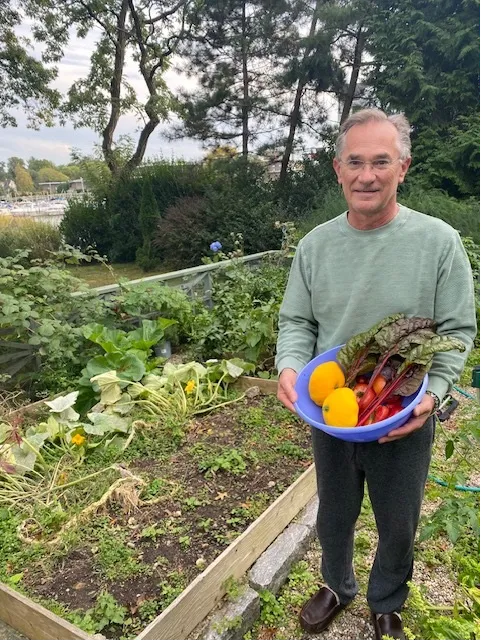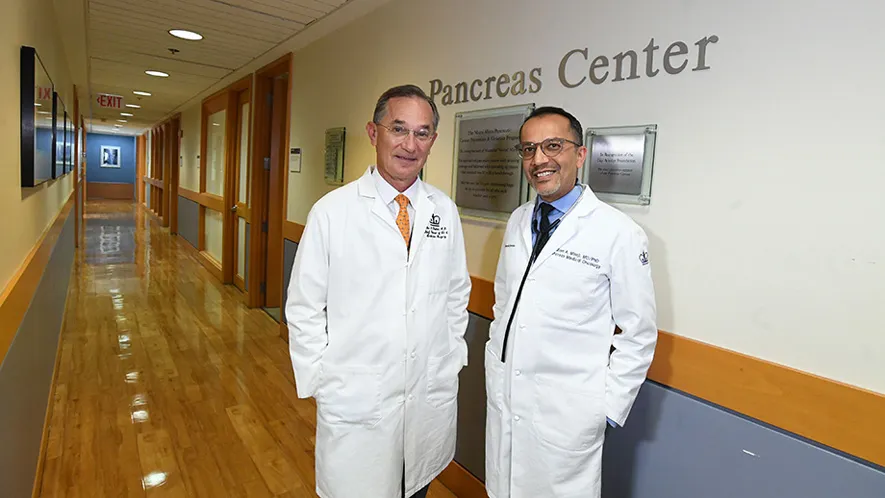Today, I grow tomatoes, eggplants, jalapeño peppers, cucumbers, zucchini, squash, asparagus, rhubarb, and Swiss chard. And I have a very hearty fig tree. These fruits and vegetables are better than anything you could get in the grocery store. I also have flowers, bushes, and trees all over the yard that I take care of, including an old oak stump that produces shiitake mushrooms all summer.
What other passions help you relieve stress and find balance?
I’m an avid fisherman. I like to big-game fish and fly fish, which I’ve done all over the world. My wife and I have a home in Cape Cod, and I like to do big-game fishing there on my boat. My goal is to catch bluefin tuna, which can range from 3 feet to 12 feet. It’s a pretty technical undertaking, and most years, I catch at least one.
My son and I also like to travel to remote places to camp and fish. We’ve been to Montana, Alaska, Iceland, Scotland, and even to Siberia. When you’re a surgeon, you’re doing high-risk procedures on people who are vulnerable and get sick easily. It’s easy to take it personally when a patient doesn’t do well, so every once in a while, it really does help to take off and go to a place like Siberia, where you can really disconnect and mentally recharge.
What advice do you have for younger doctors who want to prioritize work/life balance during hectic periods of their career?
It falls within the general advice I give to most people early in their careers: Find something you enjoy doing, then find a team where you can truly be partners to one another, because that’s crucial to your long-term success and sanity. When you work with a team of people you trust, you have faith that they can take over for you and make the right decisions — which, in turn, means you can turn off when you’re away from work. Otherwise, you’d always be checking your computer, looking over the shoulder of whoever is covering that weekend. You’re not turning off, and that’s a good recipe for burnout.










